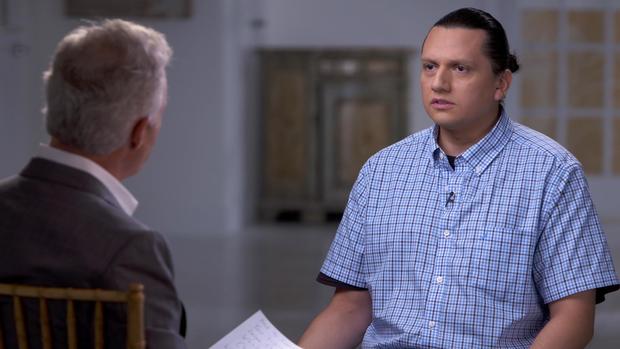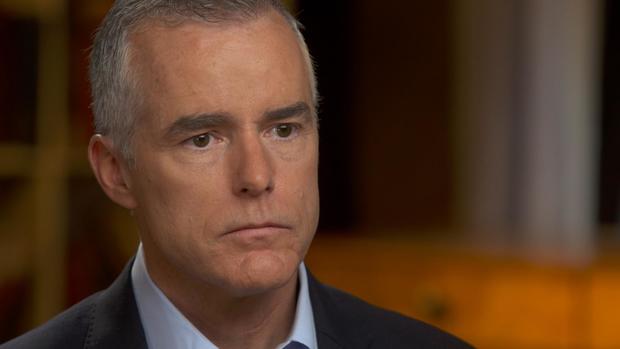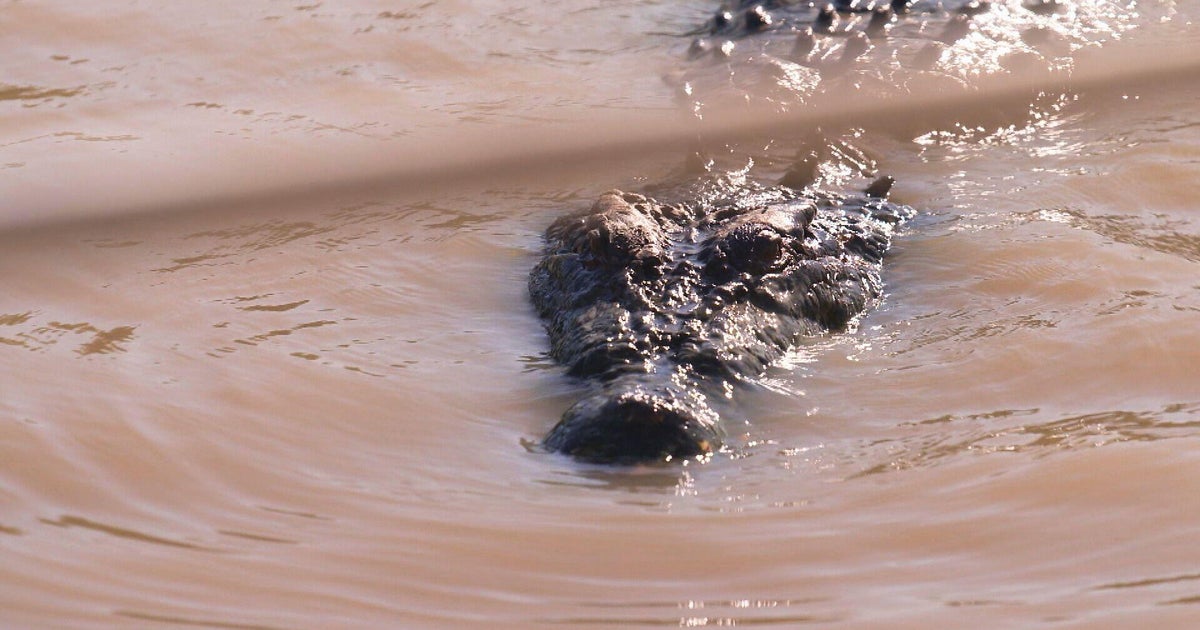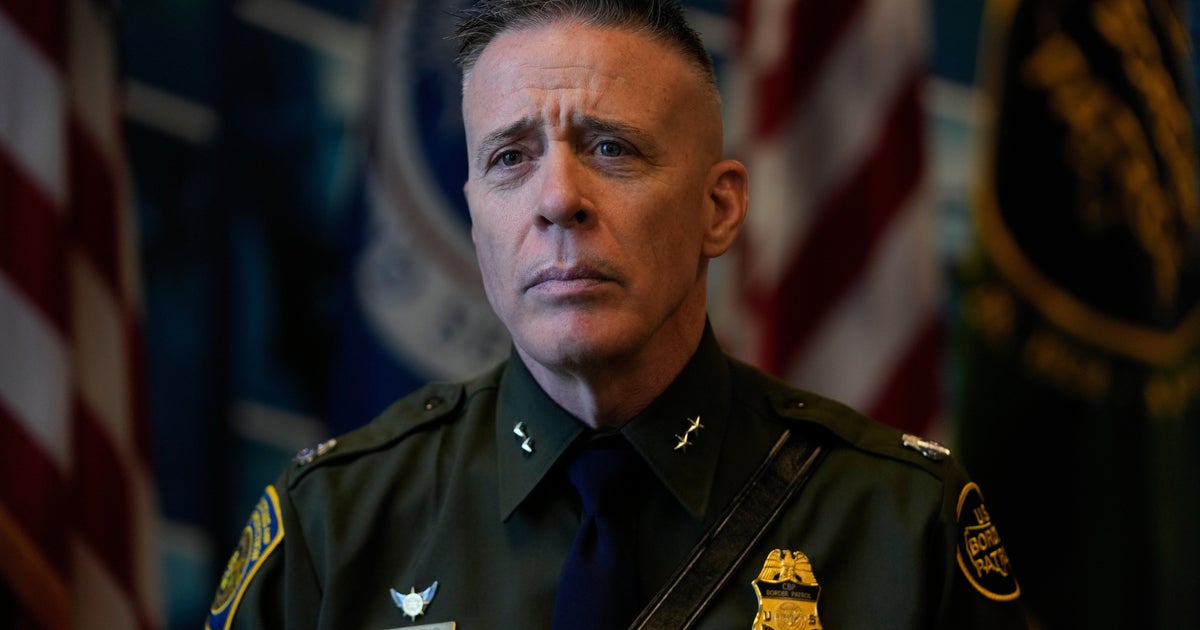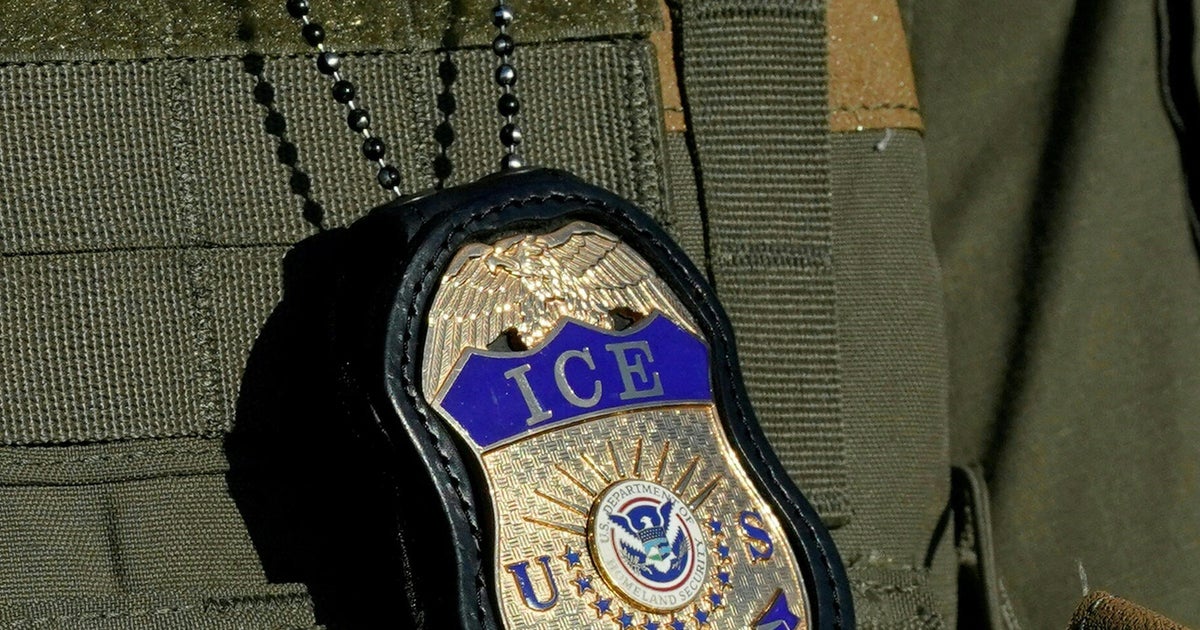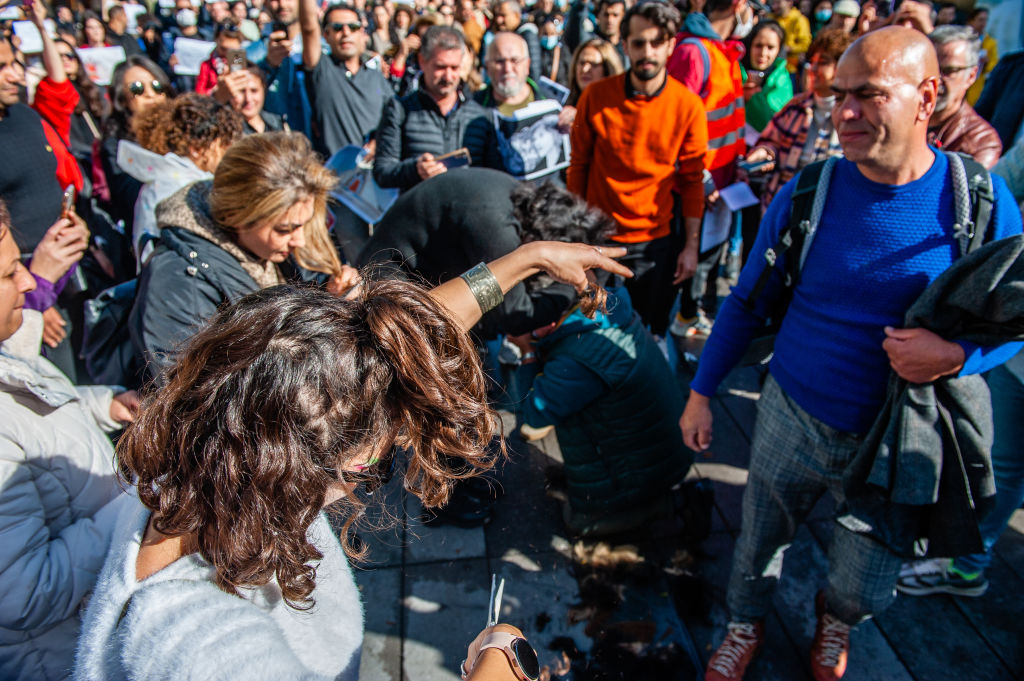Should a former terrorist be allowed into witness protection?
There's no question Bryant Viñas betrayed America. What you'll have to decide for yourself is whether he has done enough to atone for his crimes. The New York City man, raised Catholic on Long Island, joined al-Qaeda in 2008. But after he was caught, Viñas became an informant cooperating with the FBI. Today, U.S. prosecutors say Bryant Viñas may have been the most valuable witness ever in the war on al-Qaeda. Viñas impressed prosecutors and the judge in his case so much that they prepared to shield him from the prospect of al-Qaeda's revenge by putting him in the federal witness protection program. All was prepared-- until Bryant Viñas says he was double crossed.
Scott Pelley: You can assume that al-Qaeda wants to kill you.
Bryant Viñas: Yes.
Scott Pelley: Right now, today?
Bryant Viñas: Yes.
Scott Pelley: Why be on television?
Bryant Viñas: To let people know what went wrong.
Life went wrong for Bryant Viñas at an early age. He was a troubled teenager-- his mother kicked him out. Viñas was searching for purpose and converted to Islam. Later, he was seduced by the online fanaticism of al-Qaeda recruiter Anwar al-Awlaki.
Anwar al-Awlaki: We are fighting for a noble cause. We are fighting for God.
Al-Awlaki was an American killed back in 2011 by a U.S. drone.
Bryant Viñas: A lot of his sermons were very captivating, very mesmerizing, I guess you could say. He was talking about the injustices in the world, oppression going on in the Middle East. And it hit me in my heart.
Scott Pelley: And you decided that the problems in the Middle East were your problems?
Bryant Viñas: It was a problem that I could get involved in yes.
"I gave information on the Long Island Rail Road. A plot on how to attack it, basically, the tunnel that connects all the trains that lead into Manhattan."
In 2007, at the age of 24, Viñas journeyed to Pakistan and Afghanistan.
Scott Pelley: You wanted to kill Americans.
Bryant Viñas: At the time, yes.
Viñas found himself welcomed by terrorists who had longed for an American recruit who traveled on a U.S. Passport.
Bryant Viñas: I asked somebody, I said, "What group is this?" And he says, "no, this is al-Qaeda." I said, "This is al-Qaeda?" And he says yeah. This is not what you see in the videos. This is not what you see on the news.
Scott Pelley: What do you mean?
Bryant Viñas: Usually, you see monkey bars where guys are training or crawling underneath barbed wire. And I didn't do any of that. That's not how it was while I was there.
Scott Pelley: What type of training did you get in this al-Qaeda camp?
Bryant Viñas: We did-- basic Soviet weapons. They go a little bit into explosive theory, suicide-bombing vests.
Viñas says a high ranking al-Qaeda leader asked him for advice on possible targets in the U.S..
Bryant Viñas: I gave information on the Long Island Rail Road. A plot on how to attack it, basically, the tunnel that connects all the trains that lead into Manhattan. So, if the tunnel is destroyed, then it would hurt the economy in New York.
Scott Pelley: They wanted to attack the economy of the United States.
Bryant Viñas: Yes sir. The death toll isn't really the primary target.
Scott Pelley: They'd probably never heard of the Long Island Rail Road before. You might have relatives or friends on the railroad.
Bryant Viñas: Yeah. Very possible. Yeah.
Scott Pelley: How do you feel about that now?
Bryant Viñas: Regretful. Actually I'm very thankful nobody got hurt. And it was in the idea stages. And that's as far as it went.
Scott Pelley: Did you take part on any attacks on U.S. bases in Afghanistan?
Bryant Viñas: Yes sir. I was part of a defensive team to protect the group that was launching the rockets.
Scott Pelley: What was your job?
Bryant Viñas: In case a Pakistani helicopter came we were supposed to attack that helicopter so it wouldn't attack the group down below.
In 2008, after seven months in terrorist camps, Viñas took a short break to visit the city of Peshawar. Apparently, the Pakistanis were watching. He was arrested, turned over to the United States and, within days found himself in federal prison in Brooklyn. There, FBI agents offered him a choice: life in prison or, tell all about al-Qaeda. To help convince him, agents took him to Coney Island.
Scott Pelley: They took you to Nathan's Hot Dog Stand?
Bryant Viñas: Well I was in the car. And one detective went and got an order and brought it back--
Scott Pelley: And brought you a hot dog?
Bryant Viñas: Hot dogs, burgers, fries, a drink.
Scott Pelley: And they showed you around Coney Island and they said, "You can have a life again."
Bryant Viñas: Yes. He holds out his arms. He says, "You really wanna go back to-- to prison and go to Supermax for the rest of your life?" And I said, "You know what? This is my chance to get a second chance at life." And I said, "You know what? I'll take it."
So Viñas decided to plead guilty. His sentencing was postponed until the government could assess the quality of his cooperation. Confined to prison, Viñas spent eight years meeting more than 100 times with prosecutors and the FBI.
Andrew McCabe: Viñas changed the way we thought about how al-Qaeda recruits and who al-Qaeda recruits.
Andrew McCabe was the head of FBI counterterrorism and oversaw the Viñas case. This was before McCabe became better known for opening two investigations of President Trump.
Scott Pelley: How valuable was Bryant Viñas to the FBI?
Andrew McCabe: Incredibly valuable through his testimony, through his debriefings, identifying people, teaching us how he had walked this pathway from Long Island, New York into al-Qaeda.
Scott Pelley: You didn't know that stuff before?
Andrew McCabe: Learning about his experience completely broke the mold from the way that we thought business was happening. Prior to Viñas, the idea that any American could just head to Pakistan and go seek out al-Qaeda and affiliate with that group was something we thought couldn't be done.
Scott Pelley: He was a game-changer for the FBI, in terms of Al-Qaeda?
Andrew McCabe: I would say so, yes.
Steve Zissou: His information has stopped more attacks than you can even conceive of.
Steve Zissou is a defense lawyer with a top security clearance. He's represented several terrorism suspects including Bryant Viñas.
Steve Zissou: I have reviewed both classified and unclassified information. And the government's submissions to the court make it unequivocally clear that his information stopped attacks, saved lives, and permitted our military to continue the battle to take it to them, if you will.
Scott Pelley: Were drone strikes launched on the basis of his information?
Steve Zissou: No doubt about it.
Viñas' defense attorney points to drone strikes that killed 14 suspected jihadists where Viñas had lived.
Scott Pelley: So they were killing these people who used to be your friends.
Bryant Viñas: Yes sir.
Scott Pelley: How did you feel about that?
Bryant Viñas: At one time they were my friends. But, you know, if I have to leave that life behind, I can't have them be my friends no more.
"I was shocked that they took such a cavalier irresponsible step as they did to deny Mr. Viñas witness protection."
In 2017, prosecutors wrote this to the judge in Viñas' case, Nicholas Garaufis: "To say that the defendant provided substantial assistance to the government is an understatement. Indeed, he may have been the single most valuable cooperating witness…with respect to al-Qaeda..." Judge Garaufis agreed, adding that Viñas had placed his life in "grave danger" to help his country.
Judge Nicholas Garaufis: He was the extraordinary case. Mr. Viñas has certain God-given gifts, one of which is that he has a photographic memory. He remembered every place he had been. He remembered most of the people he had met. He was able to explain to the government how Al Qaeda recruits that's why he was so valuable.
With that in mind, Judge Garaufis, ruled that the eight years viñas had spent cooperating from a prison cell were enough.
Judge Nicholas Garaufis: The sentence was time served with an additional 90 days.
Scott Pelley: Why 90 days?
Judge Nicholas Garaufis: In order for him to have the opportunity to be placed in Witness Protection once he's released.
Scott Pelley: So it was your understanding that he was going to be brought into the witness protection program.
Judge Nicholas Garaufis: Yes, it absolutely was.
Scott Pelley: And what happened?
Judge Nicholas Garaufis: On the 88th day of the 90-day period, I was advised that he had been refused witness protection status by this office at the Justice Department, the Office of Enforcement Operations. There had never been a problem before in any of my cases involving cooperators who sought witness protection.
In prison, Viñas already had been in witness protection. Judge Garaufis told us it's routine for the same protection to continue after release. But the U.S. Department of Justice witness security program, known as "WITSEC," turned him down with no explanation.
Judge Nicholas Garaufis: They don't give the reasons and the prosecutors moved for reconsideration. Reconsideration was denied.
Scott Pelley: The prosecutors work for the Justice Department. The FBI agents are part of the Justice Department. All of them agree that he should be in the witness protection program. And then, another agency inside the Justice Department overrules them?
Judge Nicholas Garaufis: That's what troubles me. That-- they've had 8,700-- at least 8,700-- cooperators placed in witness protection. And I know some of these cooperators. They've been my defendants. I've had virtually the entire Bonanno organized crime family on my docket. I've had many trials involving murderers and drug kingpins on my docket. So I'm not a newcomer to this process. And I was shocked that they took such a cavalier irresponsible step as they did to deny Mr. Viñas witness protection.
The Justice Department's WITSEC office declined an interview. But in a statement to 60 Minutes it hinted at an explanation. It singled out just one of the factors in its decision process. WITSEC "…must take into account the risks associated with giving a person a new identity and placing them in a community that is unaware of the person's actual identity…" Judge Garaufis argues that, if Viñas does pose a continuing risk to the community, then witness protection would insure that the government kept tabs on him and after all Viñas has done, Garaufis says, the Justice Department has an obligation to keep him safe.
Scott Pelley: It's extremely rare, Your Honor, in my experience to have a federal judge talk about a case. And I wonder why you have done this today?
Judge Nicholas Garaufis: I've never done it before in 18 years as a judge. I won't allow the folks who made this decision to hide behind their decision. And it's a potential problem in the future.
Scott Pelley: This would have a chilling effect, in your opinion, on people who might consider cooperating in the future?
Judge Nicholas Garaufis: That's right.
Today, Bryant Viñas is on his own.
Bryant Viñas: Right now I'm working washing dishes at a restaurant. So that's how I'm paying the bills.
Scott Pelley: The greatest al-Qaeda informant of all time, we're told, is washing dishes.
Bryant Viñas: That's correct.
Scott Pelley: You're probably the only dishwasher who lectures at West Point.
Bryant Viñas: (Laughter) Yeah.
After eight years in prison, cooperating with the government, Viñas is still fighting terror. He's spoken at the U.S. Military Academy and to research organizations about the false lure of jihad. And he's still helping investigators.
Scott Pelley: Do you consider yourself, as we sit here right now, square with the United States?
Bryant Viñas: I always feel that it's-- it's a continuing process that I should do for years to come.
Judge Nicholas Garaufis: I don't forgive him for seeking to engage in jihad against the United States. It's not that you forgive him. But he turned a corner. And he was successful in doing it. The government needs to meet—to meet its part of the bargain.
Produced by Robert G. Anderson and Aaron Weisz. Associate producer, LaCrai Mitchell.

